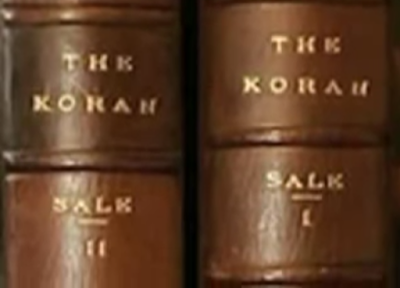Melanie Phillips: The pathological animus of ‘The New York Times’
A recent column by Bret Stephens in The New York Times was headlined “Donald Trump is bad for Israel.”NGO Monitor: Amnesty International Singling Out Jews in 2019
Others may think a more appropriate headline would be: “The New York Times is bad for Israel.”
The paper is regarded as the bible of America’s intellectual classes. Yet for years, its coverage of Israel has been a disgrace.
Of course, it’s entitled to criticize Israel as it would any other country. But it doesn’t treat Israel like any other country. It singles it out for demonization based on falsehoods, distortion and selective reporting which makes no attempt at objectivity, fairness or truth.
Last weekend, it published a 4700-word story on the life and death of Rouzan al-Najjar, a young Gazan female doctor who was killed during the riots on the southern border last June.
The story, by its Jerusalem correspondent David Halbfinger, oozed sympathy for al-Najjar and her cause. It described the rioters as “protesters”, obscuring their leaders’ aim of storming the border to murder Israelis.
It presented Al-Najjar’s death with studied but false equivalence as part of a “cycle of violence” with simplistic “narratives” on either side.
Israelis were then portrayed as trigger-happy killers who “obliged” Hamas’s aim of using bloodshed to win international sympathy and whose snipers – despite the IDF’s stated tactic of aiming at rioters’ legs unless they presented an immediate danger – deliberately shot Gazan civilians in the back.
This included al-Najjar. It was only towards the end that the story revealed she was in fact killed accidentally, when an Israeli bullet struck the ground away from her and ricocheted into her body.
Leaked documents seen by NGO Monitor and an analysis of public statements from NGO officials indicate that Amnesty International will conduct a series of intense campaigns singling out Israel in early 2019.
In this process, Amnesty will delegitimize Jewish historical connections to Jerusalem and elsewhere, as well as promote discriminatory boycotts (BDS) against Israel.
The Campaigns
Amnesty’s 2019 attacks will include at least two components:
Amnesty’s Blacklist: A “new campaign targeting some of the businesses that are profiting from human rights abuses by operating in the illegal Israeli settlements.” This language mirrors that used by UN bureaucrats preparing the UNHRC blacklist. The list is aimed at economically damaging companies that are owned by Jews or do business with Israel, and is ultimately meant to harm the Jewish state. Amnesty’s campaign is timed to bolster this UN blacklist, for which Amnesty has been lobbying intensively, and to serve as an alternative should the UN not publish its list.
Amnesty documents, seen by NGO Monitor, also show the NGO specifically seeks to censure companies that educate the public about Jewish history and historical ties to Jerusalem.
“Ban Israeli settlement goods”: A continuation of a campaign to press governments, in particular the UK, to “to ban Israeli settlement goods from entering your markets, and to stop companies based in your country operating in settlements or trading in their goods.” Amnesty has built dedicated website sections for this purpose. In addition, it has supported legislation in Ireland that, if enacted, will criminalize visiting Jewish historical and holy sites, including Jerusalem’s Old City, and purchasing goods and services from Jews located for whatever reason or duration in Jerusalem and over the 1949 Armistice Lines.
Amnesty’s Antisemitism Problem
Amnesty’s 2019 attacks on the Jewish state come at a time when NGO is facing increased criticism over its own deeply-rooted antisemitism.
In 2018, Amnesty antagonized the British Jewish community by cancelling a debate sponsored by the UK’s Jewish Leadership Council, scheduled to be held at Amnesty’s Human Rights Centre in London. And when Amnesty conducted “an unprecedented large scale analysis of abuse against women on Twitter,” it included sexism and racism against female journalists and politicians, but not antisemitism.































.jpg)




